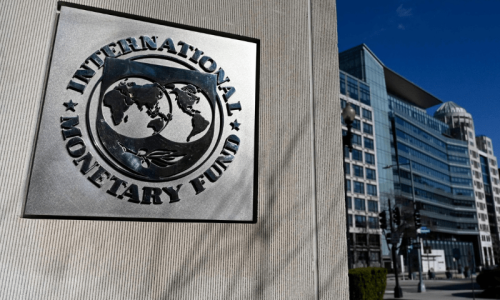KARACHI: The first month of the second half of the current fiscal year posted a current account deficit (CAD) of $269 million, but the deficit shrank significantly in the first seven months of this year.
The latest data issued by the State Bank of Pakistan on Monday shows that the current account changed its track from surplus to deficit, indicating a future trend. The current account was in surplus with $404m in December. However, compared to the January 2023 deficit of $167m, the deficit in January 2024 increased to $269m, another indicator of the rising trend of the deficit.
The government expects a deficit of up to $6 billion at the end of FY24, but this trend could enhance that figure. The country is facing a serious problem of debt servicing and needs $6.1bn for debt servicing before the end of this fiscal year. This is also necessary to negotiate with the International Monetary Fund (IMF) for the next bailout package.
During July-Jan FY24, the CAD was $1.093bn, compared to $3.769bn in the previous year, showing a decline of 71 per cent.
Seven-month CAD narrows 71pc; trade deficit contracts 31pc
The second half of the FY23 was much better, as the current account deficit ended with $2.235bn in June, a vital change from a deficit of over $17.5bn in the preceding year FY22.
The trade deficit, which is largely responsible for the CAD, showed a drastic decline of 31pc in the first seven months of FY24. Exports rose by 9pc, while imports declined by 11pc during these seven months compared to the same period last year.
Financial experts watching the situation said the IMF’s demand for liberalising imports could significantly widen the trade deficit and ultimately increase the CAD. Financial markets believe that the caretaker government is trying to linger on the current way of dealing with imports. Nowadays, banks are responsible for arranging dollars for imports. The SBP emphasises that necessary imports should not be blocked, while others are required to restrict.
Bankers believe that this policy may continue until March when the IMF is expected to release the final $1.2bn of the Stand-By Arrangement (SBA) of $3bn. After the end of this SBA, Pakistan will need to liberalise the import policy as per the demand of the IMF. Market sources said the IMF demands to increase imports by 45pc in the second half of this fiscal year.
If the country goes to implement the IMF demand, there is a possibility that the twin deficits, trade and current account, would be much higher than the targets as well as expectations.
Currency experts said the rising CAD is weakening the exchange rate, which is stable and encouraging exporters and others to sell their foreign exchange holdings. It was witnessed earlier that the destabilised exchange rate immediately resulted in lower inflows, as exporters stopped selling the export proceeds to maximise rupee liquidity.
Published in Dawn, February 20th, 2024














































Dear visitor, the comments section is undergoing an overhaul and will return soon.